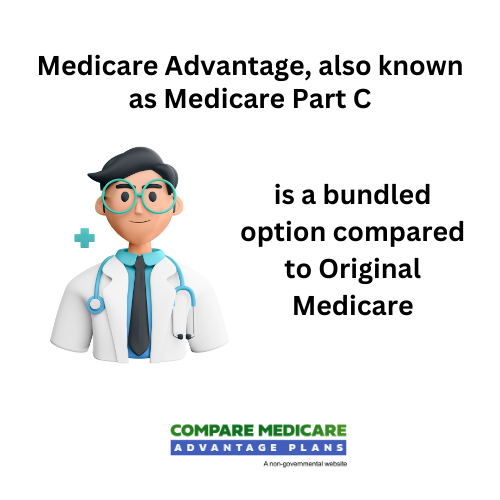




Does Medicare Pay for Assisted Living Expenses?
If you’re wondering if Medicare pays for assisted living, it’s important to understand that Medicare may not cover the cost of assisted living facilities. However, there may be exceptions and other ways to fund these costs.
This article will clarify some of the potential limitations of Medicare coverage, examine the specifics of Medicare Advantage plans, and discuss some of the additional financial options for assisted living expenses.
Key Takeaways
- Medicare will likely not cover the cost of residency or nonmedical custodial care in assisted living facilities but it may cover some medical services, such as doctor’s visits and short-term skilled nursing care after a hospital stay.
- The average monthly cost for assisted living may be less expensive than other elder care options, yet alternatives such as Medicaid, long-term care insurance, and veterans’ aid could also help cover these expenses.
- Some of the Medicare Advantage plans may offer additional benefits over Original Medicare and could also cover certain services that may support independent living, but they may not cover the full cost of residing in an assisted living facility.
Compare Plans in One Step!
Enter Zip Code
Exploring Medicare Coverage in Assisted Living Facilities
Understanding the role of Medicare could be an important aspect when contemplating assisted living. As a federal health insurance program, Medicare will likely be designed to assist older adults with medical expenses.
However, if you’re wondering if Medicare covers assisted living, the answer is no, as it probably won’t cover the cost of residency in assisted living facilities or nonmedical custodial care, which may include help with daily activities such as bathing, dressing, and eating.
On the other hand, Medicare may cover medical services provided by third-party providers at certain assisted living facilities, such as physical therapy and doctor’s appointments. It may also cover a portion of expenses for specialized nursing or rehabilitation services following inpatient hospital care lasting at least three days, for up to 100 days at a Medicare-certified skilled nursing facility.

The Boundaries of Original Medicare
Original Medicare, composed of Part A (hospital insurance) and Part B (medical insurance), will likely have specific limitations when it comes to assisted living. Medicare Part A may offer coverage for a brief stay in a skilled nursing facility after a hospitalization, but it might not cover the cost of living in an assisted living facility.
Meanwhile, Medicare Part B could provide coverage for certain medical supplies and services deemed medically necessary, which may include:
- doctor visits
- preventive care
- diagnostic tests
- durable medical equipment
However, this may not include the expenses for the assisted living facility or non-medical assistance provided within the facility. Some of these costs may need to be covered separately.
Medicare Advantage’s Role

Medicare Advantage plans, also known as Part C, could offer an alternative to Original Medicare.
These plans are offered by private insurance companies and provide all the coverage of Original Medicare, but some may offer additional benefits. However, these plans may not cover assisted living expenses.
Certain Medicare Advantage plans may offer coverage for services that support seniors in living independently at home.
However, while these services may provide some similar benefits to those that could be offered in assisted living facilities, they cannot replace the comprehensive care provided in a nursing home or an assisted living setting.
Supplementing Medicare: Does Medigap Extend to Assisted Living?
Medigap, or Medicare Supplement Insurance, could be another option for seniors who may be seeking to supplement their Medicare coverage.

These plans will likely be specifically created to fill in the gaps left by Original Medicare. They could assist with covering certain expenses like coinsurance, copayments, and deductibles.
However, assisted living expenses may not be included in Medigap coverage. This might be due to Medigap policies being designed to address gaps in Original Medicare coverage, and Original Medicare might not encompass the costs associated with residing in an assisted living facility.
Paying for Assisted Living: Alternatives to Medicare
There may be several alternatives available for financing assisted living when Medicare doesn’t cover all expenses. These might include:
- Medicaid
- Long-term care insurance
- Veterans’ aid
- Other financial resources
Thoroughly examining these potential options and comprehending how they could assist with assisted living costs will likely be necessary.
Aside from these options, other financial tools like life insurance policies, reverse mortgages, and annuities may also be used to fund assisted living expenses. For instance, a reverse mortgage may be utilized to cover some of the expenses of assisted living if a second borrower residing in the home.
Medicaid and Assisted Living
Medicaid, a state and federal program, could be an option for seniors with limited financial resources. This may provide coverage for certain expenses that may be associated with assisted living for eligible residents in various states and Washington, D.C..

Medicaid might offer waiver programs that could potentially help with the cost of personal care and support services in assisted living facilities. This could allow residents to use their monthly income for room and board while retaining a personal needs allowance.
However, eligibility for Medicaid coverage in assisted living may require residency in the state where the application has been made, and there may also be income thresholds that might vary for waivers and state plans.
Utilizing Private Insurance and Other Resources
Private insurance may not provide direct coverage for assisted living costs. However, it may offer coverage for certain associated expenses, such as:
- Medications
- Medical equipment
- Therapy services
- Home health care services
For veterans, there may be other benefits and programs that have been specifically created to provide financial assistance for assisted living expenses. One potential benefit could be Aid & Attendance, which may be provided to qualifying veterans by the U.S. Department of Veterans Affairs to address some of the expenses associated with long-term care or assisted living facilities.
Special Considerations for Skilled Nursing and Hospice Care
Despite the potential limitations in covering assisted living costs, Medicare may provide provisions for skilled nursing care and hospice care in assisted living communities under specific conditions.
For example, Medicare may provide coverage for skilled nursing care in assisted living communities for short-term stays if specific conditions have been met.
When it comes to hospice care, Medicare may also provide coverage in an assisted living community if the individual meets the eligibility criteria, which may require a doctor-certified life expectancy of 6 months or less. Medicare coverage for hospice care may encompass:
- Drugs for symptom and pain control
- Medical and support services that could be tailored to the patient’s needs
- Some respite care
- Grief counseling for the patient and family.
Preparing for Long-Term Care: How to Plan Financially
Financial planning for long-term care may include investigating diverse payment options to cover the potential assisted living costs, consulting with experts, and taking into account potential factors such as location, medical needs, and anticipated future healthcare needs.

Financial advisors could assist individuals in managing long-term care expenses by:
- Devising a strategy to manage expenses
- Determining the necessary types of care
- Assessing possible situations
- Examining insurance alternatives such as long-term care insurance.
Summary
Understanding the potential financial aspects of assisted living will likely be crucial for planning and making informed decisions about long-term care. Although Medicare might provide coverage for certain medical services, it may not cover the cost of residency in assisted living facilities.
However, possible alternatives such as Medicaid, long-term care insurance, and other financial resources could help bridge the gap. Planning for long-term care financially will likely be paramount, taking into consideration various payment options, seeking expert guidance, and considering potential factors such as location, medical needs, and future healthcare expectations.
Frequently Asked Questions
→ How do you qualify for assisted living in NY?
To qualify for assisted living in NY, applicants must be medically eligible for nursing home care but may not require around-the-clock nursing care, and they must have self-mobility to function in an assisted living environment.
→ What part of Medicare covers long-term care for whatever the beneficiary might need?
Medicare Part A will likely cover long-term care under certain hospice services when certain conditions have been met.
→ Does Medicare cover assisted living in Wisconsin?
No, Medicare may not cover the cost of assisted living in Wisconsin, but it may cover some in-home care services like skilled nursing and home health aides.
→ What does Medicare cover in assisted living facilities?
Medicare will likely cover specific medical services like physical therapy and doctor’s appointments in assisted living facilities, and may also cover a portion of expenses for specialized nursing or rehabilitation services after a qualifying hospital stay.
→ What are the alternatives to Medicare for financing assisted living?
Some of the potential alternatives to Medicare for financing assisted living may include Medicaid, long-term care insurance, veterans’ aid, and other financial resources like life insurance policies, reverse mortgages, and annuities. You might want to consider exploring these options for financing assisted living.

ZRN Health & Financial Services, LLC, a Texas limited liability company



